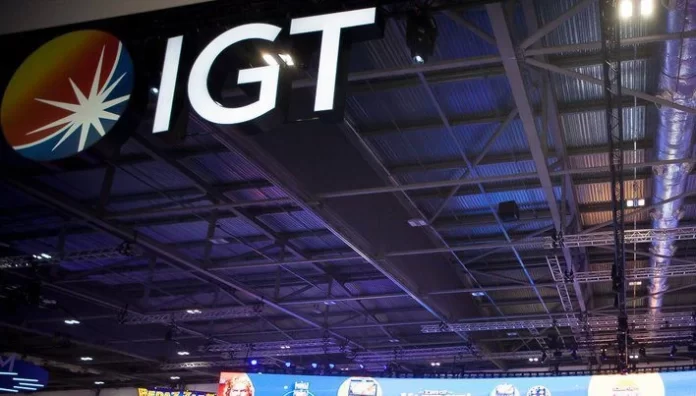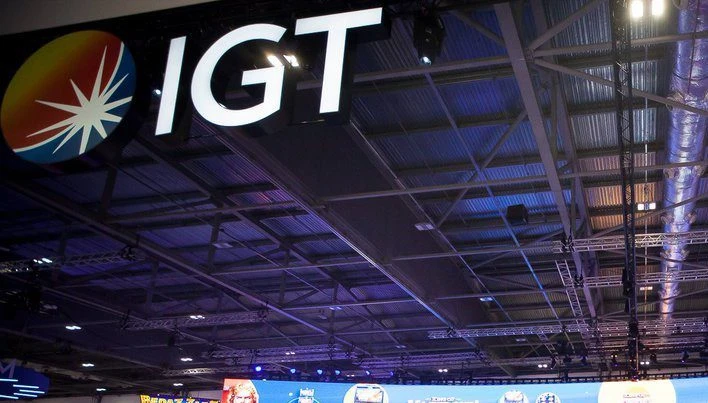The revenue increase was driven by growth within its Fintech division, where revenue was up 9.4% in 2023. However, the news was not so good for the Everi Games arm, with revenue down 1.7%.
Perhaps of more concern is a drop in group revenue in Q4, despite reporting growth in the other three quarters. This was attributed to a decline within Gaming while Fintech revenue was only marginally up in Q4. Net profit dropped by 85.2%.
However, this was seemingly not enough to put off International Game Technology (IGT) from pursuing a merger with Everi. This was announced today (29 February) alongside the results.
IGT will spin off its Global Gaming and PlayDigital businesses, which will then combine with Everi. IGT shareholders are set to own 54% of shares in the combined business, with Everi stockholders holding the remaining 46%.
Impact of acquisitions for Everi
The IGT merger will seemingly halt any further M&A activity at Everi. The group has been on something of a spree in recent years, adding several new assets to its business.
Recent deals include acquiring the assets of electronic bingo provider Video King in April 2023. In 2022, Everi also purchased certain assets from Venuetize, as well as more assets from Atlas Gaming and several properties from XUVI in 2022.
Some of these assets have now been part of Everi for more than a year and their long-term impact is yet to be seen. However, given that Everi as a whole will soon be part of IGT and benefitting from the tech giant’s colossal industry status, there is room for development.
This opinion is shared by Everi CEO Randy Taylor, who referenced the IGT merger as an exciting opportunity for the business.
“This morning, we announced the strategic combination of Everi with IGT’s Gaming and Digital businesses,” Taylor said. “We are excited about the opportunity to bring together the two companies to create a world class leader in gaming solutions for our customers.
“After several years of rapid growth, 2023 was a transitional year in our gaming business as we executed on our roadmap which included the introduction of four new cabinets and new content. Our FinTech business continues to perform well, adding new products and services to our suite of financial access, RegTech and loyalty solutions.”
A tale of two businesses
Looking at Everi’s segmental performance in 2023, Games produced the most revenue at $429.2m. However, this was down from $436.4m in the previous year.
Gaming operations produced the most revenue for this segment, but the $304.1m was down year-on-year. Incidentally, gaming equipment and systems revenue also dipped to $125.0m.
As for FinTech, revenue was up to $378.7m seemingly closing the gap of the Games arm. This was helped by an 8.8% rise in financial access services revenue to $225.1m, while software and other revenue increased 24.1% to $99.5m.
The only downside for FinTech, however, was hardware revenue, which slipped 8.3% to $54.1m.
Net profit falls after spending rises
Looking at expenses, cost of revenue for Games was, understandably, lower year-on-year. Everi was also able to keep FinTech revenue costs level despite growth in the division.
However, Everi reported higher spending elsewhere. Operating expenses jumped 20.2% to $260.9m and research and development 11.7% to $67.6m. Depreciation and amortisation costs were also higher, with overall costs for Everi rising 10.4% to $628.5m.
The group also reported an additional $77.7m in finance costs, up 39.3%. As such, pre-tax profit for 2023 hit $101.6m, down 35.5%.
Everi paid $17.6m in tax but noted a $730,000 gain in foreign exchange translation. As such, net profit for the year stood at $84.7m, a decline of 28.0%. In addition, adjusted EBITDA was 1.9% lower at $367.0m.
Q4 concerns for Everi
Turning to Q4, as already reported, revenue was down $192.0m, compared to $205.4m in 2022.
Games revenue declined 14.2% to $97.1m, reflecting a decrease in revenue from machine sales and gaming operations. FinTech revenue edged up 3.0% to $94.9m on the back of financial access services and software growth, although hardware revenue was down.
Spending-wise, cost of revenue across both Games and FinTech was lower year-on-year. However, as was the case in the full year, increased expenses elsewhere pushed overall costs up 10.9% to $170.5m.
After accounting for $19.7m in finance expenses, pre-tax profit hit $1.9m, a far cry from the $34.4m profit posted in 2022. However, Everi was helped slightly by a $2.4m gain in foreign exchange translation and a small tax benefit.
As such, it ended Q4 with a net profit of $4.3m, still some way short of the previous year’s $29.0m total. In addition, adjusted EBITDA fell 12.0% to $82.2m.
What can we expect in 2024?
Although Everi will almost certainly be operating as part of an enlarged group in 2024, given today’s news about IGT, the business still published certain forecasts for the current 12 months.
Importantly, Everi said it expects revenue growth in both the Games and FinTech segments. It also said adjusted EBITDA will be slightly higher year-on-year, with free cash flow flat or marginally down.
Looking at this segment-by-segment, Everi said continued growth in FinTech will be driven by its expectation for low-single-digit industry growth. It also noted the benefit of new products and services to both new and existing customers.
As for Games, Everi expects continued pressure in game sales and declines in the installed base in H1. This will be in line with the ongoing roll-out of new cabinets and content, as well as the removal of lower-performing gaming operations units. Everi says this will maximise return from invested capital, primarily in the early part of 2024.
Original article: https://igamingbusiness.com/finance/full-year-results/higher-costs-offset-revenue-growth-at-everi-in-2023/















